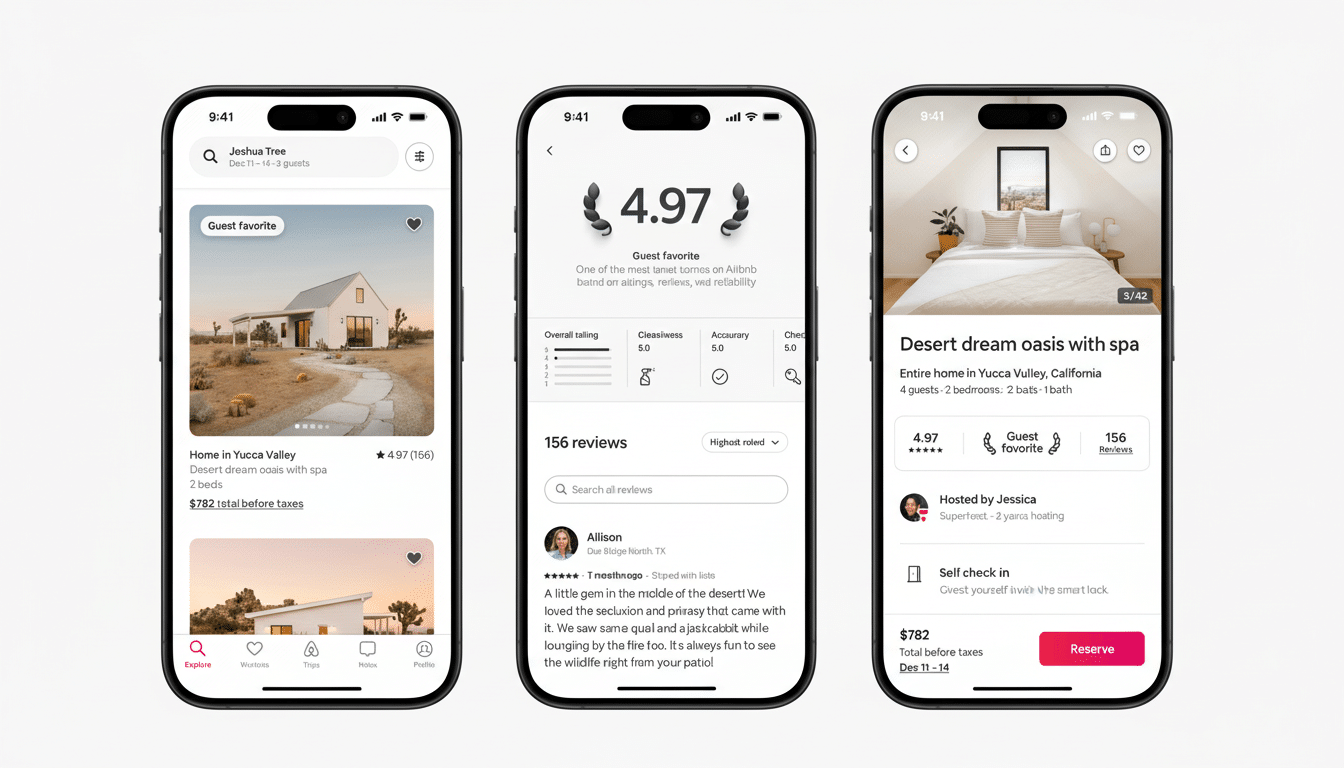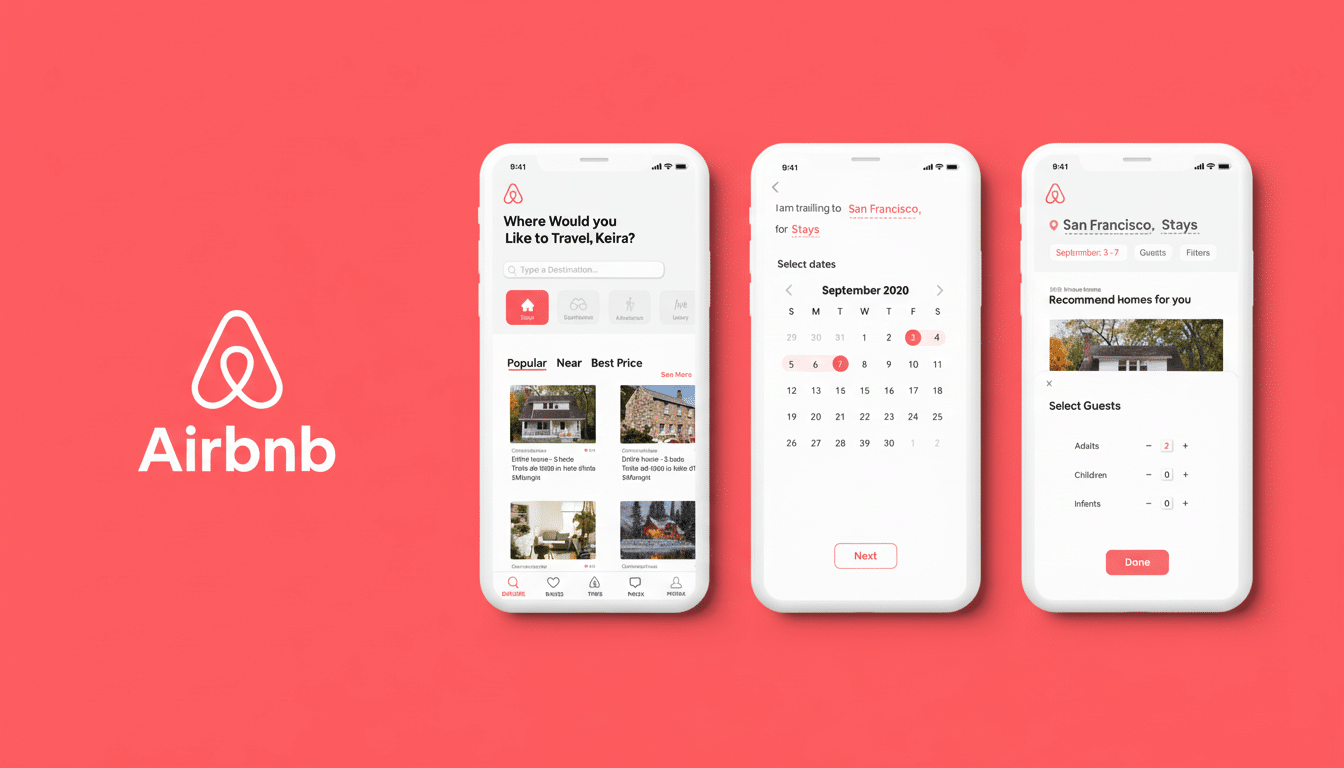Airbnb is running a limited pilot that lets guests stock their rental’s fridge before they arrive, integrating Instacart ordering directly into the Airbnb app. The test folds grocery delivery into Airbnb’s broader push beyond lodging, giving travelers a practical, pre-arrival add-on and giving hosts a new way to earn through pre-check-in prep.
How the kitchen stocking pilot works in select U.S. cities
According to TechCrunch, Airbnb’s kitchen stocking pilot will begin in January in select U.S. markets. In Phoenix, Orlando, and Los Angeles, some listings are eligible. Guests may place in-store Instacart orders up to three weeks before their stay, with delivery options to their host’s delivery address, and the portal lets them specify arrival windows aligned with their check-in. Hosts can elect to receive the delivery and put the items away before guests arrive.

According to Airbnb’s host guidance, hosts who opt in may receive $25 per completed pre-arrival stocking task, as well as a one-time $100 bonus on their first completed order. Airbnb contends that grocery ordering and delivery services on its platform fall beneath its expanding “Services” rubric. The company introduced the provision earlier this year to enable guests to book add-on amenities such as massages, haircuts, or private chef meals from the host—either for their stay or as standalone bookings.
The ordering and fulfillment will be handled by Instacart, which partners with a broad network of national and regional grocers. Instead of waiting for an arrival window to let guests in and show them around while racing to the store to grab essentials such as coffee, milk, or breakfast to serve the next morning, the pilot uses the booking as a shared instruction vector.
Why groceries matter for stays and first-night convenience
Kitchen access is the primary reason that many travelers opt for vacation rentals rather than hotels, especially families and long-stay guests who want to cook. Pre-arrival stocking turns that idea into a less lumpy first evening, with higher satisfaction scores (without guests juggling different apps, delivery timing and building instructions).
Instacart says its service is available to more than 95% of U.S. households, so the pilot has broad theoretical coverage if it goes national. And the convenience play also fits with Airbnb’s larger strategy to capture incremental revenue that falls outside of nightly rates. Services, Airbnb Chief Executive Brian Chesky has said, could eventually generate $1 billion or more in annual revenue — a sum that would put the company in play with travel platforms that bundle tours, activities and on-the-ground services.
What hosts and guests can expect from the pilot program
Operationally, the details matter. The guests’ instructions should be clear on when food is to be delivered, timing windows close to check-in and advice about perishables so they do not spoil. Substitution preferences (such as desired brand replacements) should be indicated in the Instacart order, with that information visible to hosts, but there could still end up being on-the-spot decisions for hosts, so Airbnb will presumably lean toward handling as little as possible beyond refrigeration and delivering items to pantries.

Alcohol deliveries could prompt ID checks and local compliance rules; you can expect those to be left between Instacart shoppers and the ordering guest, rather than with the host. So if your meal efforts fall short or take too long, you can consider turning your focus back onto yourself as a guest instead of the chef. For apartment buildings or gated residences, coordination of access will be a key way to prevent failed deliveries. Hosts will also want clarity around liability, like what they should do if an order is late, damaged or stolen after drop-off and whether claim processes fall to Instacart, the guest or Airbnb.
The $25 task fee and first-order bonus are meant to make up for the time it takes to receive, store and stage items. How much that compensation feels fair depends on the market, season of travel and a host’s workflow. Airbnb will undoubtedly keep a close eye on acceptance rates, task completion times and guest satisfaction to calibrate the incentives.
Strategic context and competition amid service expansion
Stocking pantries with groceries isn’t novel in hospitality — luxury hotels and some vacation rental managers have long provided pantry services that guests can pre-order before arrival. The distinction here is scale and integration. By routing orders through the Airbnb app and using Instacart’s marketplace, the companies can experiment with a standardized, repeatable model that could scale across markets — without Airbnb having to own last-mile logistics.
The shift intensifies competition with services-focused in-market platforms like Tripadvisor, Booking.com, Viator, and GetYourGuide. If Airbnb can demonstrate that in-app groceries boost review scores or conversion for family and extended-stay segments, it supports the argument for Services to be a sustainable revenue stream rather than just another niche bundle of extras.
What to watch next as Airbnb tests grocery partnerships
Key pilot questions include whether a fee will be added for guests in addition to Instacart’s standard charges, how opt-in and scheduling might function at scale, and how Airbnb will address privacy around order details and dietary information. Whether it will be brought to a wider market than just Phoenix, Orlando and Los Angeles will probably depend on how many hosts sign up for deliveries and feedback on delivery reliability and guest satisfaction.
Bloomberg was first to report the pilot. Where success is indicated early, I’d anticipate a phased release to more U.S. markets where Instacart coverage and host density are ideal, with adjustments made to incentives and protections in response to real-world sticky situations unearthed through the initial test drive.

